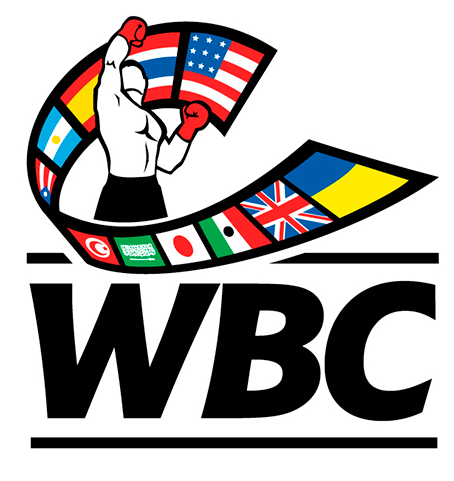

WBC social media statement: "The WBC is maintaining two-minute rounds for women's boxing, a standard backed by independent clinical science! Our commitment to safety is paramount. Studies show greater concussion susceptibility for female athletes, guiding our policy. Protecting fighters always comes first."
In a separate tweet, the WBC wrote: "Why two-minute rounds? The WBC’s decision is backed by clinical science from PINK Concussion. Research shows female athletes have greater susceptibility to concussion and longer recovery times. Safety guides boxing's evolution—just like moving from 15 to 12 rounds with men."{
But the WBC left the door open to further argument, stating, "If you have a medical article that you want to share to keep the discussion open, please send it to us. We are open to discuss it with facts and scientific findings."
FULL WBC STATEMENT:
The WBC remains committed to the safety and well-being of all fighters, while continuing to engage thoughtfully in the ongoing evolution of the sport of boxing. The WBC reaffirms its leadership in upholding the highest standards of safety and competition within the sport of boxing. In keeping with that mission, the WBC stands by its policy establishing two-minute rounds for women’s boxing—consistent with the ABC Unified Rules and regulations —and supported by findings from a comprehensive clinical study conducted by medical experts. The WBC strongly supports equality and opportunity for women, both inside and outside of the ring. However, that pursuit must never compromise the physical safety of any athlete.
STATEMENT FROM MAURICIO SULAIMÁN: Earlier this month, WBC President Mauricio Sulaimán addressed this topic in his weekly op-ed published on the WBC website. He referenced examples from other major sports—such as women’s tennis adopting best-of-three sets in Grand Slam events, and cycling reducing race distances for female competitors—where differences are designed to enhance safety, performance quality, and athletic longevity.
“The WBC was the first organization to implement the Women’s Boxing Championship,” Sulaimán wrote. “We have supported women’s boxing through many initiatives—but most importantly, through our commitment to safety. This is not about equality, sexism, or discrimination; it is purely about protecting athletes.”
THE CLINICAL BASIS: According to an independent clinical study by PINK Concussion, “Scientific research consistently demonstrates that female athletes experience greater susceptibility to concussion, higher symptom severity, and longer recovery durations compared to males. These differences are believed to result from multiple factors, including variations in cervical strength, hormonal influences, neuroanatomy, and symptom reporting behaviors.”
PINK Concussion is a conglomerate of international and independent medical doctors and attorneys specializing in neurological studies pertaining to women in sports, both combat and otherwise, domestic violence, and accidents. PINK approached the WBC back in 2017, the year when the first ever 3-minute, 12-round female fight took place, and the following decade has seen both entities striving to achieve a mutual understanding of this subject for the betterment of the sport and the safety of its participants.
The WBC’s position is grounded in clinical science and evidence-based best practices by this independent organization. Should new, credible research emerge that challenges or advances current understanding, the WBC will reassess its position accordingly. The Council’s commitment to both progress and safety is unwavering—protecting fighters while supporting the continued growth and recognition of women in the sport.
SAFETY AND EVOLUTION OF THE SPORT: Safety has always guided boxing’s evolution. Historically, world championship bouts were contested over 15 rounds. Today, they are limited to 12 rounds—with regional title fights typically set for 8 to 10 rounds. These adjustments were not made because today’s fighters are any less capable, but because the sport continues to evolve toward safer, more sustainable standards for athletes and audiences alike.
ONGOING COMMITMENT: The WBC takes great pride in its stewardship of the sport and recognizes the responsibility that comes with it. The organization and its executive leadership continuously evaluate and implement new initiatives that promote safety, fairness, and progress—ensuring that boxing continues to grow responsibly for future generations.
The WBC donated over one million dollars to support research at UCLA, one of the most prestigious universities in the United States, and we invite all those who feel inspired to get involved and contribute to this cause to reach out to the WBC without hesitation.
Let us promote open dialogue, so that scientific progress may help us evolve as a united sports community.
Signatories of Supporting Medical Professionals and PINK Concussion’s Professional Advisory Board Members
PRIOR BOXINGTALK COVERAGE
NOV. 4, 2025: The WBC has received official notification that Chantelle Cameron has decided to vacate its 140-pound world title. The BBC reported that Cameron was relinquishing the title in protest over the WBC's insistence that women stick to two-minute rounds instead of the three-minute rounds that are standard for men's fights.
Born on May 14, 1991, in Northampton, England, Cameron has had a remarkable career. In October 2020, she captured the WBC title by defeating Adriana dos Santos Araújo. She went on to unify all four major titles and become the true 140-pound world champion. In 2023, she suffered a narrow loss to Katie Taylor, whom she had previously defeated. In July 2024, she regained the WBC interim title and successfully defended it in 2025. She was apparently "e-mailed" the full championship by the WBC some time this year. The WBC said it deeply appreciates Cameron’s professionalism, courage, and contributions to their organization, and wishes her the very best in all her future endeavors, both inside and outside the ring.
